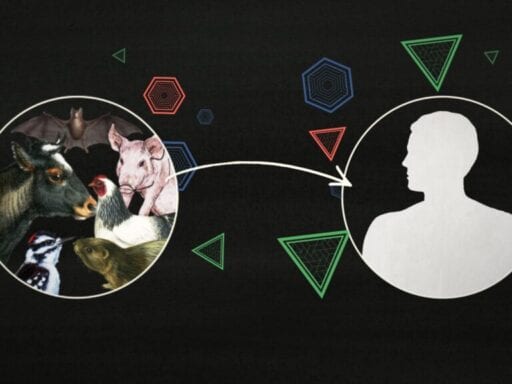It’s never been easier for animal pathogens to spill over into humans.
Over the past 40 years, disease outbreaks among humans have become more frequent. The majority of those diseases are zoonoses, or diseases that originated in animals, like Ebola, West Nile virus, and probably Covid-19. But what makes zoonotic outbreaks likelier than ever is actually something humans are doing.
Science journalist Sonia Shah, author of the 2017 book Pandemic, says the expansion of humans onto more of the planet’s land has increased the likelihood of disease outbreaks in two ways. First, as humans move into what were once animal habitats, we end up living closer to animals that might contain dangerous pathogens. Secondly, as we destroy or alter animal habitats, we’re driving away or killing off animals that once served as a “firewall” between those pathogens and us.
And the human land development driving this trend shows no signs of stopping.
Watch the video above to learn more about how human land use is increasing the chance of zoonotic disease outbreaks.
You can find this video and all of Vox’s videos on YouTube. If you’re interested in supporting our video journalism, you can become a member of the Vox Video Lab on YouTube.
Every day at Vox, we aim to answer your most important questions and provide you, and our audience around the world, with information that has the power to save lives. Our mission has never been more vital than it is in this moment: to empower you through understanding. Vox’s work is reaching more people than ever, but our distinctive brand of explanatory journalism takes resources — particularly during a pandemic and an economic downturn. Your financial contribution will not constitute a donation, but it will enable our staff to continue to offer free articles, videos, and podcasts at the quality and volume that this moment requires. Please consider making a contribution to Vox today.
Author: Danush Parvaneh
Read More



